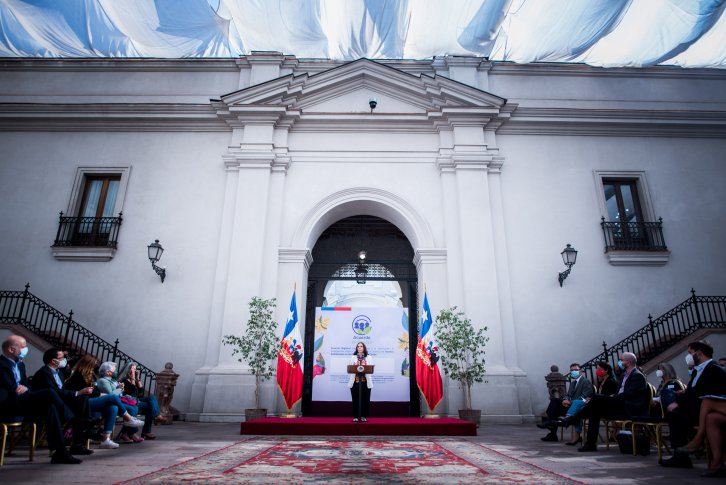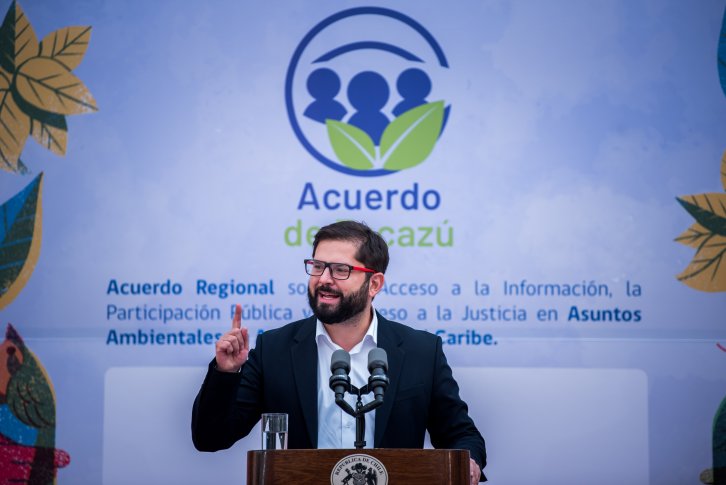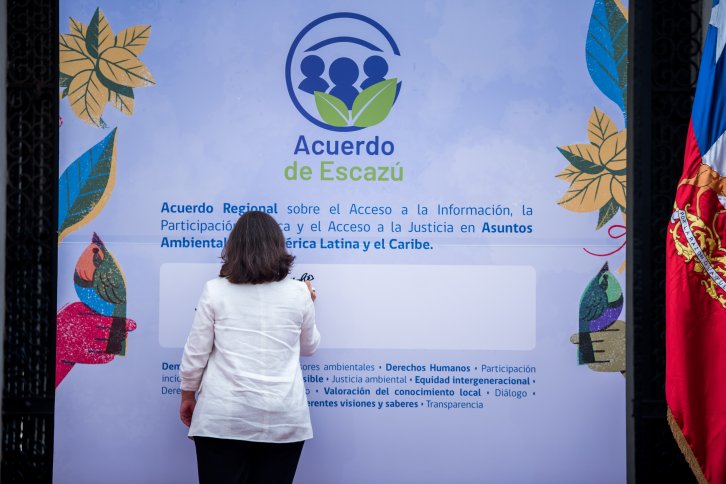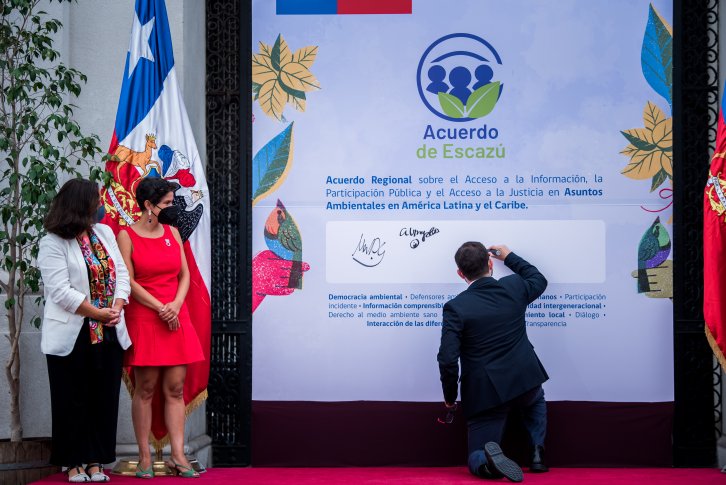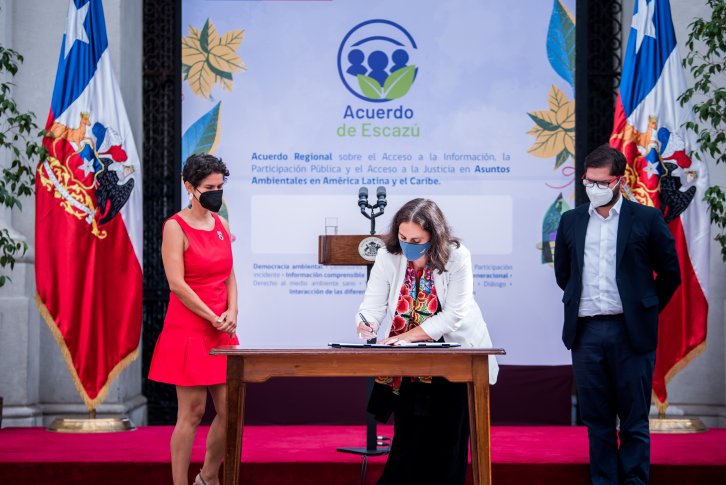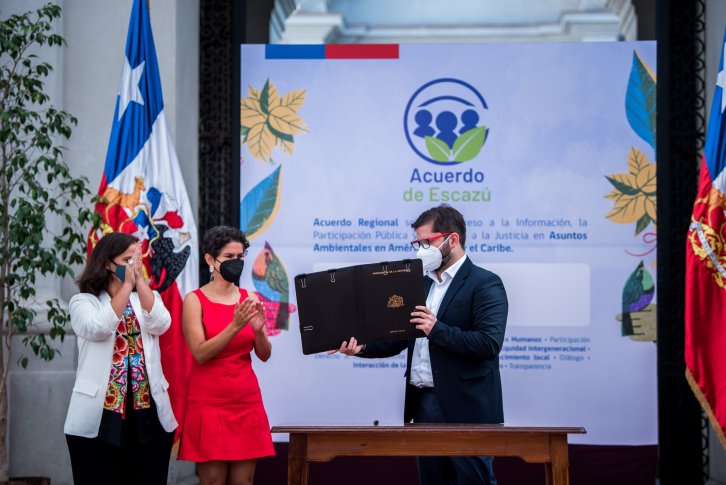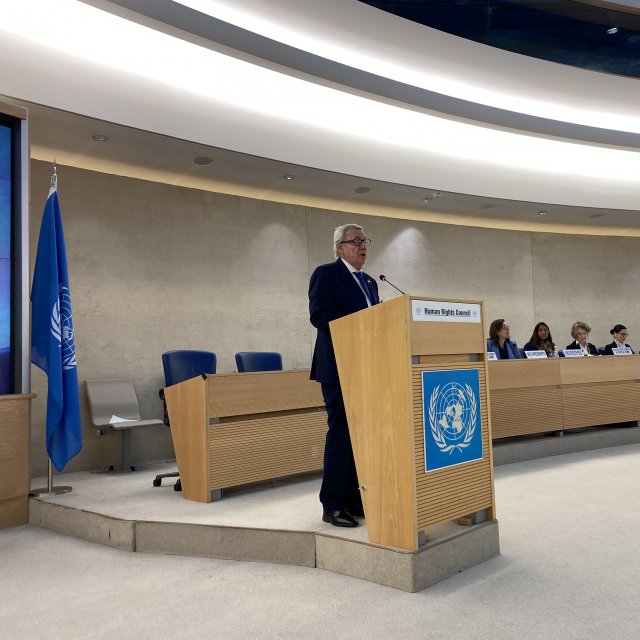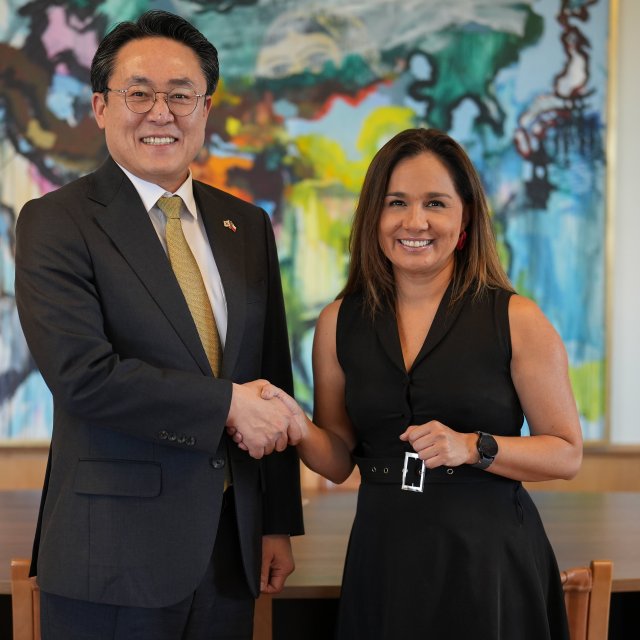 Thursday, February 27th 2025
Undersecretary meets with the Minister of Oceans and Fisheries of the Republic of Korea
Thursday, February 27th 2025
Undersecretary meets with the Minister of Oceans and Fisheries of the Republic of Korea
Foreign Minister Antonia Urrejola affirms that the Escazú Agreement redefines the focus of the country's foreign policy: "Today is a hopeful day for Chile".
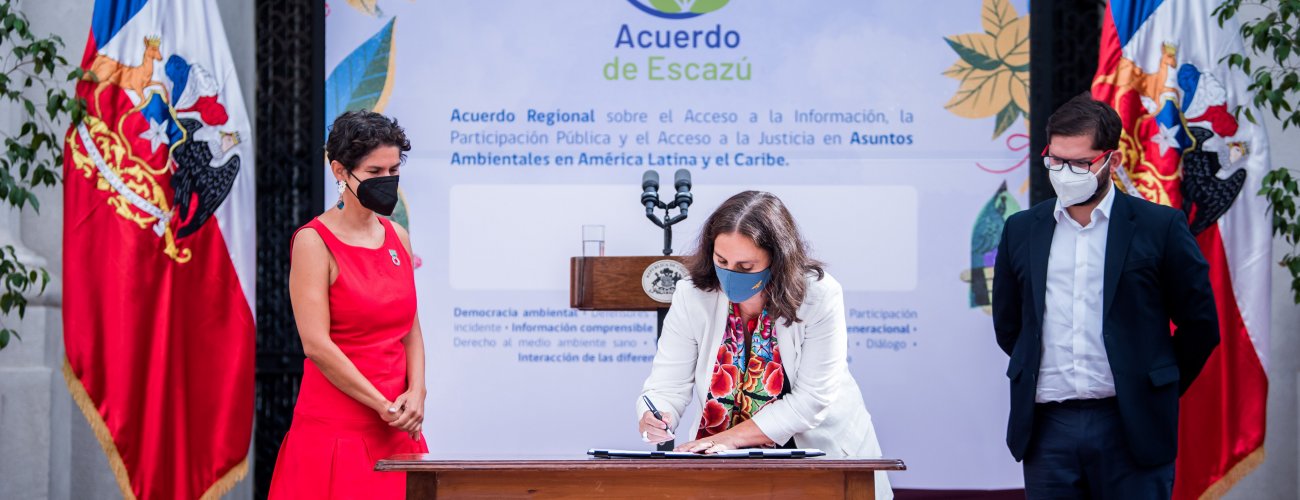
"Today marks the beginning of the process of adhesion to an agreement that will make it possible to reach ambitious pacts for a fairer and more inclusive society". With this phrase, Foreign Minister Antonia Urrejola celebrated the signing of the Escazú Agreement, and said that today we are living "a hopeful day for Chile".
The signing of the Agreement took place in the "Patio Los Naranjos" of the Palacio de La Moneda, and represents the beginning of Chile's accession phase to the environmental agreement, which has already been signed by 24 countries in Latin America and the Caribbean, and ratified by 12 of them.
On the occasion, the Foreign Minister underlined that our country's affiliation to the Escazú Agreement "redefines our foreign policy objectives, with a clear focus on sustainable, sustainable and inclusive development, as well as on the environment, communities, people and the way in which they interact; a more participatory and citizen-based foreign policy". This signing, the Minister added, represents a return to the best of our diplomatic tradition. "We want to recover Chile's international prestige and for Chilean men and women to feel proud of the country's contribution to the world".
The Escazú Agreement is the result of a negotiation process initiated by Chile at the Rio+20 Conference in June 2012, it is the only environmental treaty in the region and its relevance lies in the fact that it is a pioneering regional treaty for the benefit of the environment, gender equity, human rights and the protection of defenders of land, territory and the environment.
Among the guests from civil society and the political world, the Chancellor affirmed that this action of adhesion is fully in line with the government program of President Gabriel Boric. "Our turquoise foreign policy seeks to strengthen multilateral cooperation in the protection of the environment and the ocean, both globally and regionally, precisely so that we can jointly face the serious climate crisis."
Focus on Human Rights
The main beneficiaries of the agreement are the most vulnerable communities of the Latin American population, since its purpose is to guarantee the right of all people to have timely access to information, to participate meaningfully in the decisions that affect their lives and to have access to justice when their rights have been violated.
This is the first international treaty that addresses the situation of human rights defenders in environmental matters, in order to guarantee their protection. "This is especially important because various studies today place our continent as the region of the world that represents the greatest risk for environmental defenders, who suffer dramatic situations of attacks, threats, intimidation and assassinations," explained Foreign Minister Antonia Urrejola.
Prior to the signing, Minister Antonia Urrejola extended special recognition to those who carry out selfless work in defense of the environment, recalling that there are more than 128 socio-environmental conflicts in Chile, according to data provided by the National Institute of Human Rights. He also had words to highlight the work of 227 human rights defenders who were murdered in 2020 globally, most of them from Latin America and the Caribbean.
The Chancellor concluded her speech by making a special appeal to the National Congress to quickly process the approval of the bill, and emphasized the total willingness and need to work together to accompany the process leading to Chile's ratification of the Escazú Agreement.
Related articles
 Thursday, February 27th 2025
Undersecretary meets with the Minister of Oceans and Fisheries of the Republic of Korea
Thursday, February 27th 2025
Undersecretary meets with the Minister of Oceans and Fisheries of the Republic of Korea
 Monday, February 24th 2025
Minister van Klaveren reaffirms Chile's commitment to human rights and gender equality
Monday, February 24th 2025
Minister van Klaveren reaffirms Chile's commitment to human rights and gender equality







